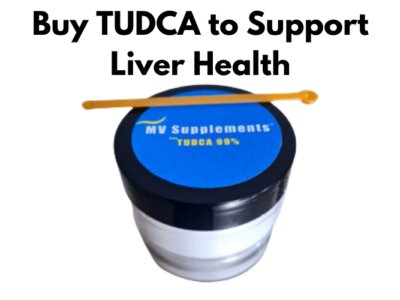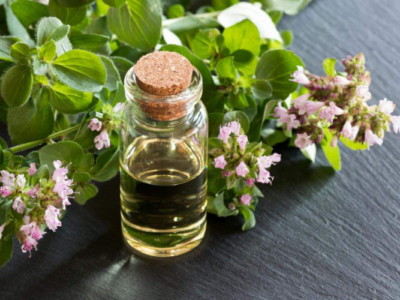Vitamin E is an essential nutrient that is beneficial for overall health and wellness. It has been found to reduce the risk of cardiovascular disease, cancer, and other chronic diseases. Vitamin E is a fat-soluble vitamin that plays an important role in maintaining the health of the skin, eyes, and immune system.
What is Vitamin E?
Vitamin-E is an essential nutrient that is required for the proper functioning of our bodies. It is a fat-soluble vitamin that is found in certain foods and is also available in supplement form. Vitamin E plays an important role in promoting health and protecting against disease. It is a powerful antioxidant that helps protect cells from damage caused by free radicals, which can lead to premature aging and disease.
Vitamin E is also important for maintaining healthy skin and eyes, normal blood clotting, and for supporting the immune system. The recommended daily allowance for adults is 15 mg per day. Foods that are rich in Vitamin E include nuts, seeds, vegetable oils, wheat germ, fortified cereals, and green leafy vegetables. Vitamin E is also available in supplement form, usually as a mixture of different forms of vitamin E, including alpha-tocopherol and gamma-tocopherol.
Health Benefits of Vitamin E
Vitamin E is an essential fat-soluble vitamin with important antioxidant properties. It is a powerful natural antioxidant that helps protect cells from the damage caused by free radicals. It is also known to help improve the appearance of skin and hair, as well as to reduce the risk of certain types of cancer. Vitamin E also plays a role in regulating the immune system and promoting healthy vision. Additionally, it has been shown to help reduce the risk of heart disease, stroke, and certain types of dementia.
In terms of nutrition, Vitamin E can be found naturally in many foods, including vegetable oils, nuts, seeds, green leafy vegetables, and fortified foods. The recommended daily intake of Vitamin E is 15mg for adults, and it should not exceed 1000 mg per day. Taking Vitamin E supplements can be beneficial for those unable to get enough through their diet.
Nutritional Sources of Vitamin E
Vitamin E is a powerful antioxidant that is found in many foods and is essential for maintaining optimal health. It’s important to get enough of this nutrient in your diet to reap its many health benefits. Fortunately, there are a wide variety of foods that are rich in Vitamin E, so it’s easy to meet your daily needs. Nuts, such as almonds, peanuts, and hazelnuts, are among the best sources of Vitamin E.
Sunflower seeds, wheat germ, and olive oil are also great sources. Leafy green vegetables, such as spinach and broccoli, are also good sources of Vitamin E. Some fruits, including kiwi, avocado, and mango, are also good sources. Eggs, fish, and dairy products are also dietary sources of Vitamin E. It’s important to remember that Vitamin E is a fat-soluble vitamin, so it’s best to consume foods that contain healthy fats, like olive oil and avocados, to ensure that your body absorbs the Vitamin E.
Recommended Vitamin E Intake
Vitamin E is an essential nutrient that our bodies need for proper functioning. It is a powerful antioxidant that helps protect our bodies from the damage caused by free radicals. It has been found to reduce the risk of certain cancers, heart disease, and even Alzheimer’s disease. To ensure that we get enough vitamin E, it is important to understand the recommended daily intake.
The recommended daily intake of vitamin E depends on several factors, including age, sex, and activity level. For adults, the Recommended Dietary Allowance (RDA) for vitamin E is 15 milligrams (mg) per day for both men and women. However, pregnant and lactating women should ideally consume more, up to 19 mg per day. For children aged 1-3 years, the RDA is 6 mg per day, while 4-8 year olds should aim for 7 mg.
It is important to note that these recommendations are for synthetic forms of vitamin E, which can be found in supplements and fortified foods. Natural sources of vitamin E, such as nuts, seeds, and vegetable oils, are generally more concentrated and therefore can provide a higher dose of the nutrient. Furthermore, the bioavailability of natural sources of vitamin E is believed to be higher than that of synthetic forms. Therefore, it is recommended to get the majority of your vitamin E intake from natural sources.
Potential Dangers and Side Effects of Vitamin E
Vitamin E is an essential nutrient with many health benefits, however, it is important to be aware of the potential dangers and side effects associated with it. Taking too much Vitamin E can result in an increased risk of bleeding, as it can interfere with clotting factors in the body. Vitamin E can also interact with certain medications, such as blood thinners, and can cause an increase in bleeding.
Additionally, taking too much Vitamin E may cause an imbalance of other vitamins and minerals, leading to nausea, diarrhea, and other unpleasant symptoms. It is important to consult a doctor or a nutritionist if you are considering taking large doses of Vitamin E. Additionally, it is important to monitor your Vitamin E intake and regularly monitor your health to make sure that the supplement is not causing any adverse reactions.
Conclusion
Vitamin E is an important vitamin that can provide numerous health benefits when consumed in the right quantities. Its antioxidant properties can help reduce inflammation, protect cells from damage, and fight off free radicals that can cause disease. Moreover, Vitamin E can help improve skin health, boost the immune system, and reduce the risk of certain cancers. While it’s best to get your Vitamin E through food, supplements can also be used to ensure you are getting enough of this essential vitamin.











Comments